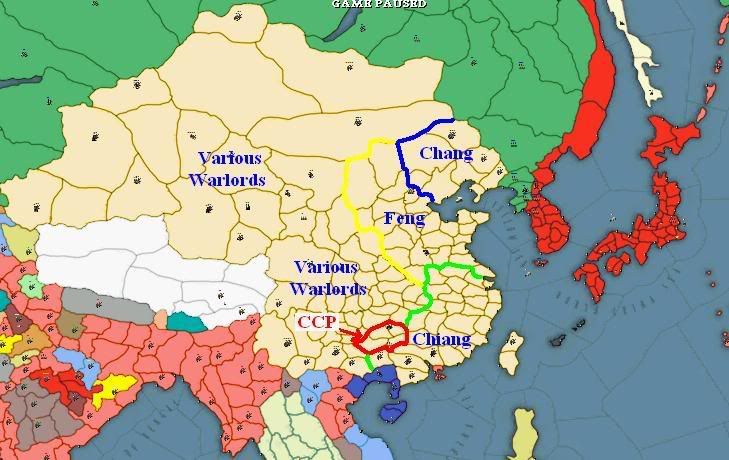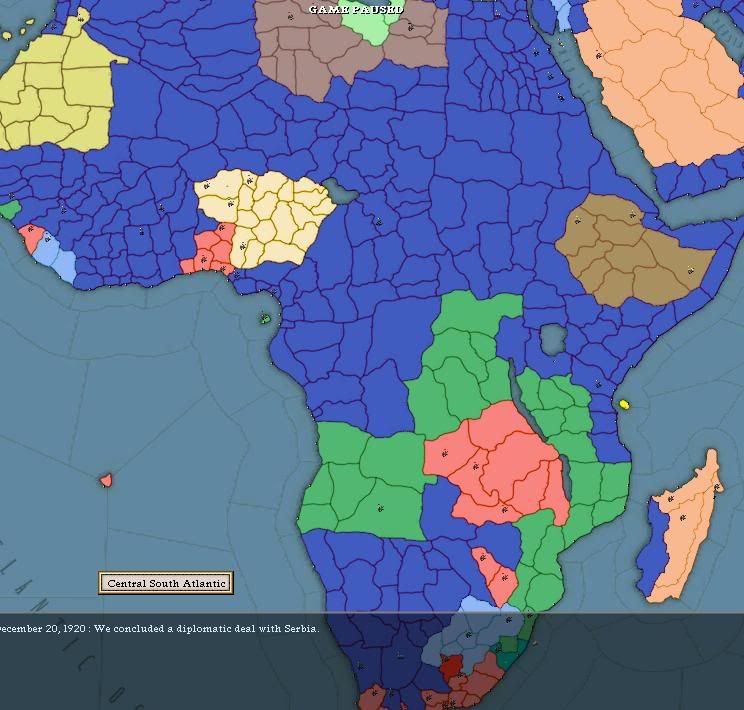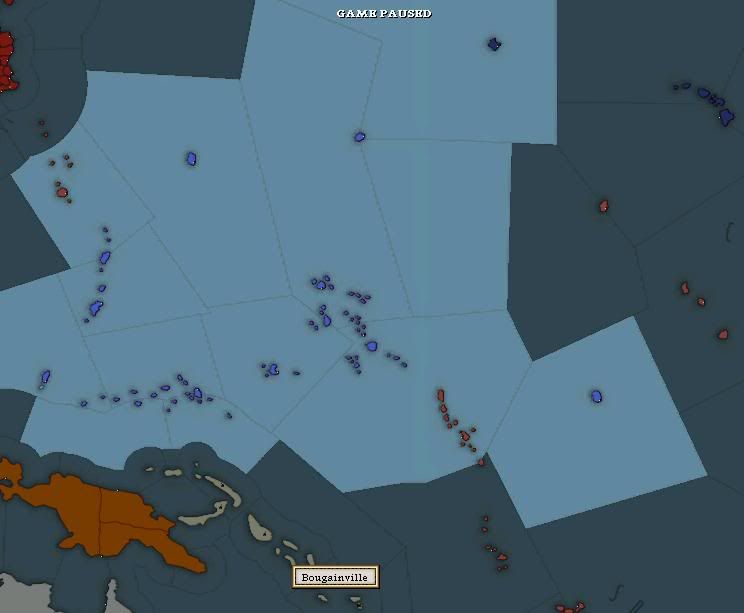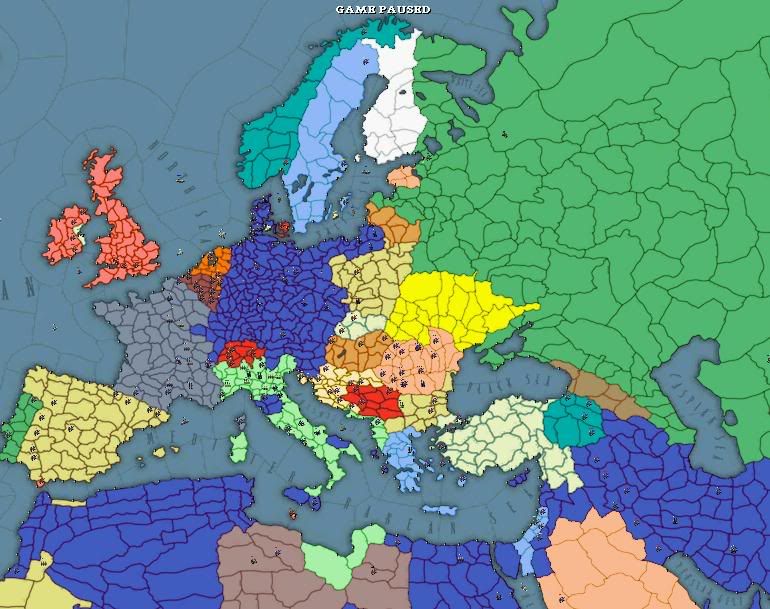Epilogue: Chapter 8
After a series of wars with Mexico, the United States finally completed what amounted to a staged annexation of Mexico over the course of several decades. The final annexation, of Mexico City, occurred on December 6th, 1920.
Though the gradual assimilation of Mexico and its population was not impossible, it did cause no small degree of social distress within the United States. Besides the increased population this entailed, it also was somewhat of a culture shock, beyond what the USA had had to face with earlier expansion, which was primarily into less populated areas. Linguistic differences were less foreign, so to speak, to American demographic changes, but the concentration of so many Spanish-speaking residents in one area, with their different cultural norms, drawn from both local Indian and European Spanish origins, caused a bilingual and multicultural atmosphere that was relatively unusual, and proved difficult to bridge. It is interesting to speculate how different the United States might have been, had they not invaded and incorporated so vast and different a land as Mexico.
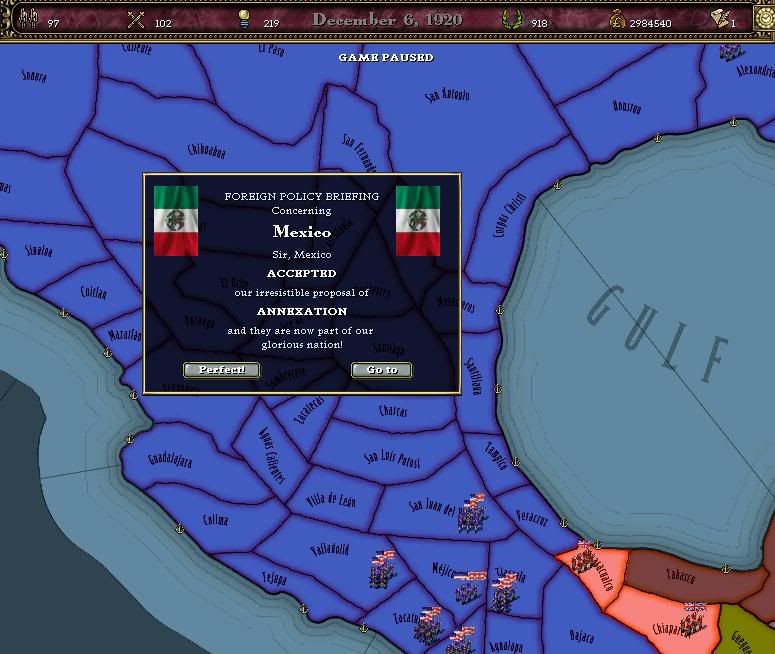
From 1921-1928, President Calvin Coolidge – “Silent Cal” as he was known affectionately, because he was so laconic – provided stable, steady leadership for a recovering economy and a growing population. His attitude toward rebuilding after the war was characterized by the press as “silent confidence,” which the American people needed.
The scars of the war with Germany still itched in the Northeast. Hundreds of thousands of families around the country had lost sons in the war. But now that the invaders were gone, some healing could occur. The German occupation had been relatively kind, as wartime occupations go. The economy began to recover on its own from the disruptions of war.
Coolidge's economic governance, he believing in “lassiez-faire” non-intervention in the economy, allowed it to build, steadily at times, and far more rapidly at others. Considering the great emergency, Coolidge did not see it as contradictory to offer some forms of government assistance. However, the main responsibility of caring for those who had been wounded, invalided or made destitute by war fell upon private charities and, especially, churches. Which was, to the mind of Coolidge and most Americans, as it should be.
This post-war, post-Wilsonian era at first proved to be one of the most prosperous and carefree the United States had ever experienced. The final acquisitions of Mexico had ended that front of international conflict, and there really were no others to be had. People had money to spend, and began to save and invest it, which brought further improvements.
Industrialization had made manufactured products cheaper, so citizens could buy not just necessities, but also conveniences. The American road network opened up, paralleling in some places, but often outpacing and reaching far beyond the rail network. Automobiles, and even aeroplanes, became regular sights across much of the United States. The American economy soared, and the sky seemed to be the limit.
In 1928, Coolidge announced that he would not run for a third term in office. Herbert Hoover, a handsome and successful businessman who had served as Coolidge’s Commerce Secretary, and who had also run one of the primary post-war aid societies, seemed the perfect choice as Coolidge’s successor.
But Hoover was not so philosophically conservative, and was unsure of himself – distinctly different from the quiet, never wavering leadership of “Silent Cal.”
The economy is a delicate thing, and is so driven by perception that it can be unbalanced by any deviations from the norm. The economy – seemingly strong as it was – was experiencing what economists call a “bubble” – an overvaluation of stocks based on unrealistic expectations of growth. It was a dangerous condition for the economy to be in.
And Coolidge’s laissez-faire approach was fine, by itself. But certain areas of the economy lacked regulation that should, perhaps, have had them. One area was the stock-trading sector, where traders bought stocks “on margin” – basically on credit – and cashed in to pay off the debt once the stock’s value had risen. Naturally, traders who took this risk presumed a rising market.
In mid-1929, minor warning signs began to crop up. Uncertainty, brought by Hoover’s back-and-forth posturing on federal aid to the war victims, and to agriculture, caused the economy to cool. Wise investors were concerned that he might reverse many of Coolidge’s policies, and so pulled back their investments to wait and see. This caused stock prices to level out, and caused consternation among those who had been trading on margin. The savviest of them saw the risk increase, and pulled their own investments out. Which left the riskiest investors and the least experienced investors in the market that was rapidly turning cold.
Panic gripped the system, once people realized what was going on. Runs on the banks and pleas to “sell at any price” ended any normalcy in the market, and it dropped sharply. The apparent value of Wall Street dropped by as much as 20 percent, and then began a slow parabola downward. Hoover made a series of missteps in responding to the crisis, worsening the situation. The United States economy entered a depression – not the worst it had ever experienced, but a dramatic fall from vast heights, to be sure.
International finance, linked as it had become in a “shrinking world,” responded to the American crisis, transmitting the crisis to varying degrees to most of the economies around the world. Many entered either a depression or a recession. The process fed upon itself, and the slump seemed to have entrenched itself around the world.
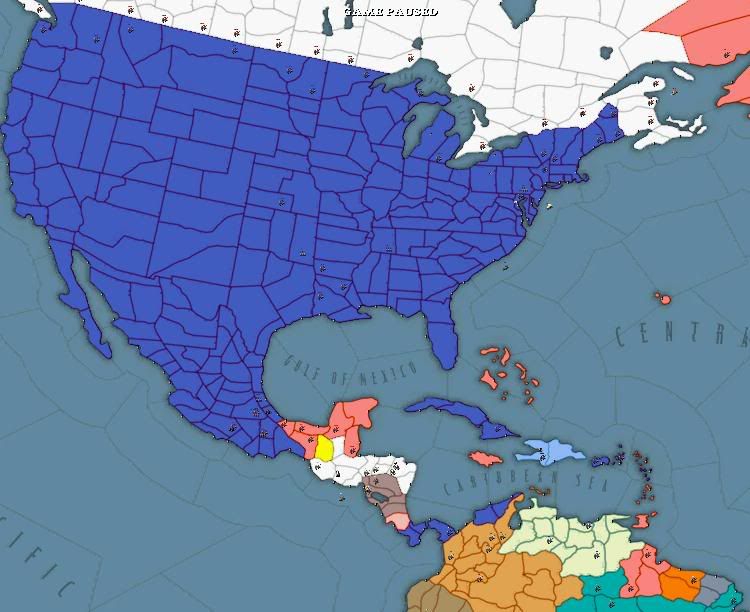
***EditAAR’s Note: This is NOT the “Great Depression” – it is a milder version of it. I may have my numbers slightly off, as I don't have time to look it up, but I think I positioned this at about 2/3 as bad as the real Great Depression. The real crisis got started in a process very similar to the one described above, but was worsened in the early ‘30s by an international finance crisis over the payment of “war debt” from World War I (reparations payments from Germany to the European Allies, and from the European Allies to the United States) -- something that, obviously, doesn't happen here.


